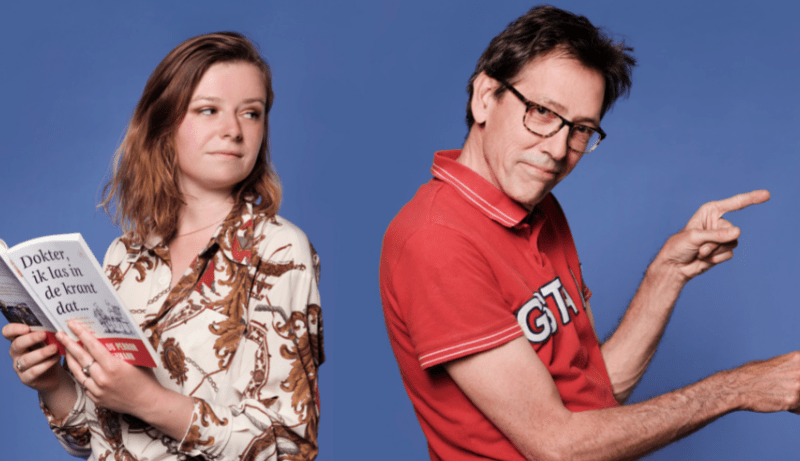Nico Wulffraat, professor of paediatric rheumatology at the WKZ, is retiring this week. In his work as a doctor and researcher, he was aware that patients have unique knowledge and experiences that can contribute to better care. He realised that from a patient’s perspective, the same situation can look very different. “Doctor Wulffraat had real attention for me. He asked me how school was and paid real attention when I told him how I was doing. For me, it is very important to be seen as a person,” says Lotte van den Berg (23). As a toddler, she came to the hospital with juvenile arthritis. Until she was 18, she visited Nico Wulffraat frequently for check-ups. When things got worse, she also came to the WKZ for treatment.
Nico Wulffraat consistently asked patients in his consulting room about their personal situation, their illness and recovery and the possibilities and limitations they faced in daily life. “And he was very good at puncturing, for instance, an elbow or a knee without anaesthetic. That’s very impressive,” says Casper Schoemaker. Father of Jet, a now adult daughter with juvenile arthritis. Schoemaker became a patient participation consultant at UMC Utrecht and, together with Wulffraat, he set up various research projects in which patients played a central role. “Patients come up with different research questions than doctors or researchers. Nico understood this. He arranged funding for research that made daily life more bearable for patients with juvenile arthritis.” The collaboration between Schoemaker and Wulffraat led to impactful scientific publications, but also practical tools for chronically ill children.
“When I was 14, doctor Wulffraat asked if I wanted to collaborate on the development and testing of the Reuma-to-go App,” says Lotte van den Berg. “In the app, children like me could enter data at home about how they feel and whether they experience fatigue or pain. It’s a way of being honest with the doctor about how I really am. By nature, I tend not to want to dwell on the pain I feel every day. I’ve learned to look beyond my illness. To say that I’m doing quite well, even when I’m not. Sometimes that’s the way it is to the outside world, but at the same time a doctor wants to be able to form a good picture over time.” Working with Wulffraat gave Lotte satisfaction. “It made that I not only benefit from Dr Wulffraat’s care and scientific knowledge, but that I can also add something to science.”
Patients with juvenile arthritis face different challenges from an early age than healthy children. They struggle with pain, fatigue, and an unstable ability to work, which often leads to a lack of understanding from their surroundings. You cannot tell by looking at them that they are dealing with the consequences of their illness on a daily basis. “We have therefore developed a card game called ‘Zooo vermoeiend’ (Tired as I am), which patients can use to explain to other teenagers why they can and cannot take part in activities. That they would like to be reliable and keep social appointments, but that their erratic health does not always allow this,” says Casper Schoemaker. “That is just one of the examples where Nico Wulffraat, together with patients, knows how to make a difference for patients. From making certain side effects of medication measurable with validated questionnaires to the development of a research agenda. This collaboration has always led to research that benefits patients. We will certainly miss Nico Wulffraat, not only in healthcare but also in education and research.”
A chronic illness did not stop Lotte van den Berg from studying medicine. “I knew at a young age that I wanted to become a doctor, doctor Wulffraat has always been an important inspiration for me.” While Nico Wulffraat is retiring, Lotte is starting her career in the clinic. She starts her internship in September.
